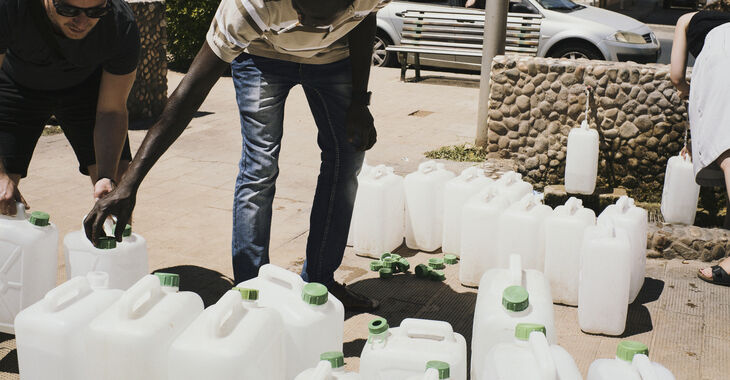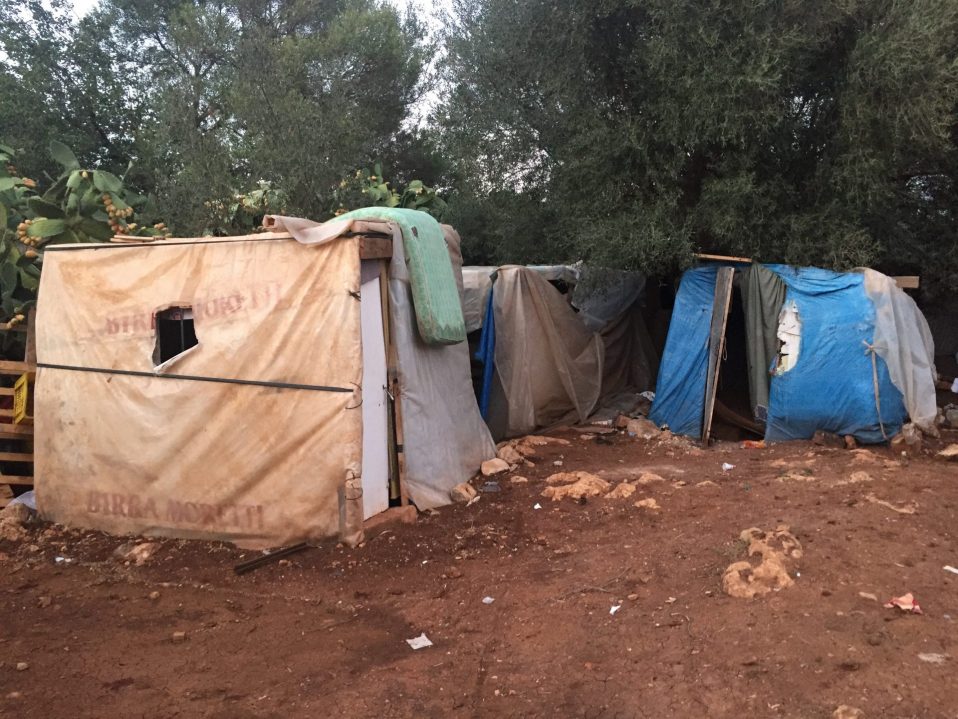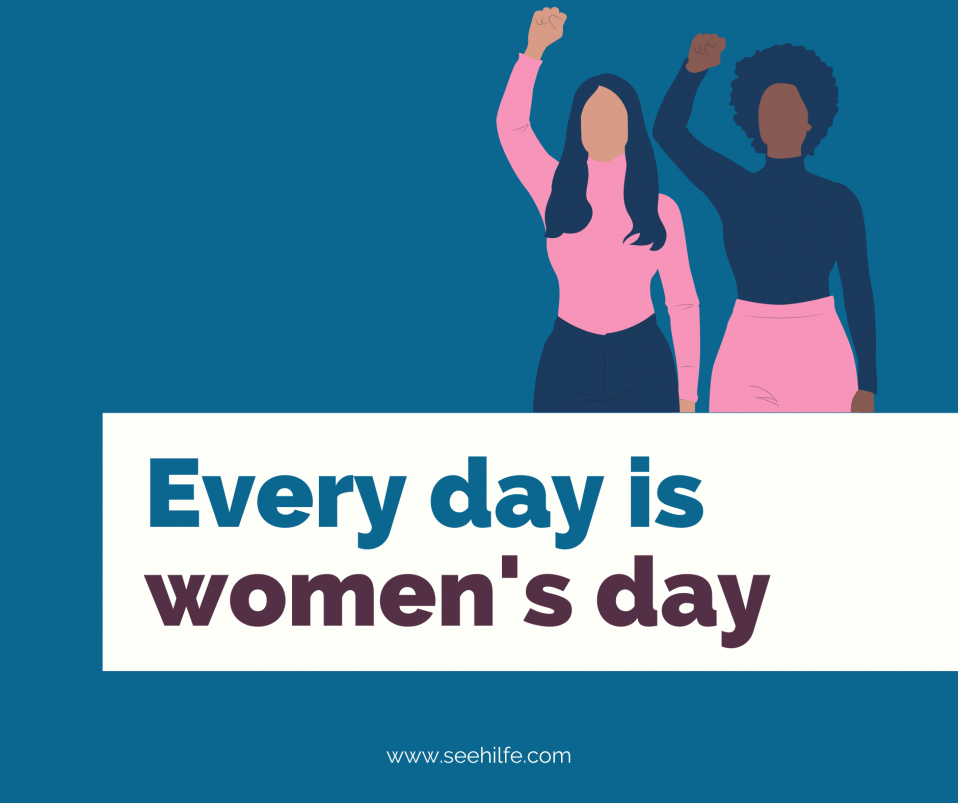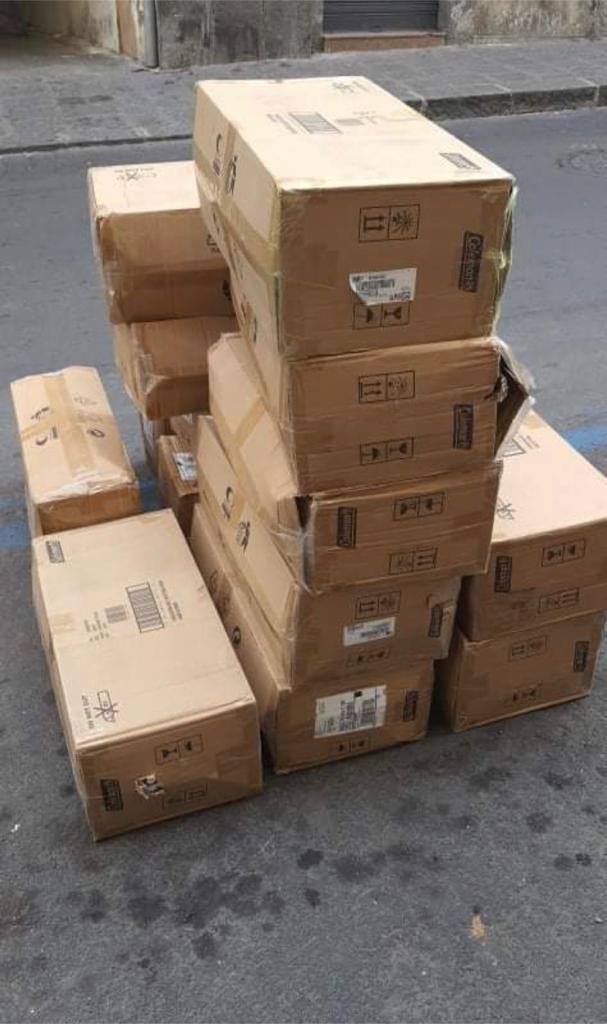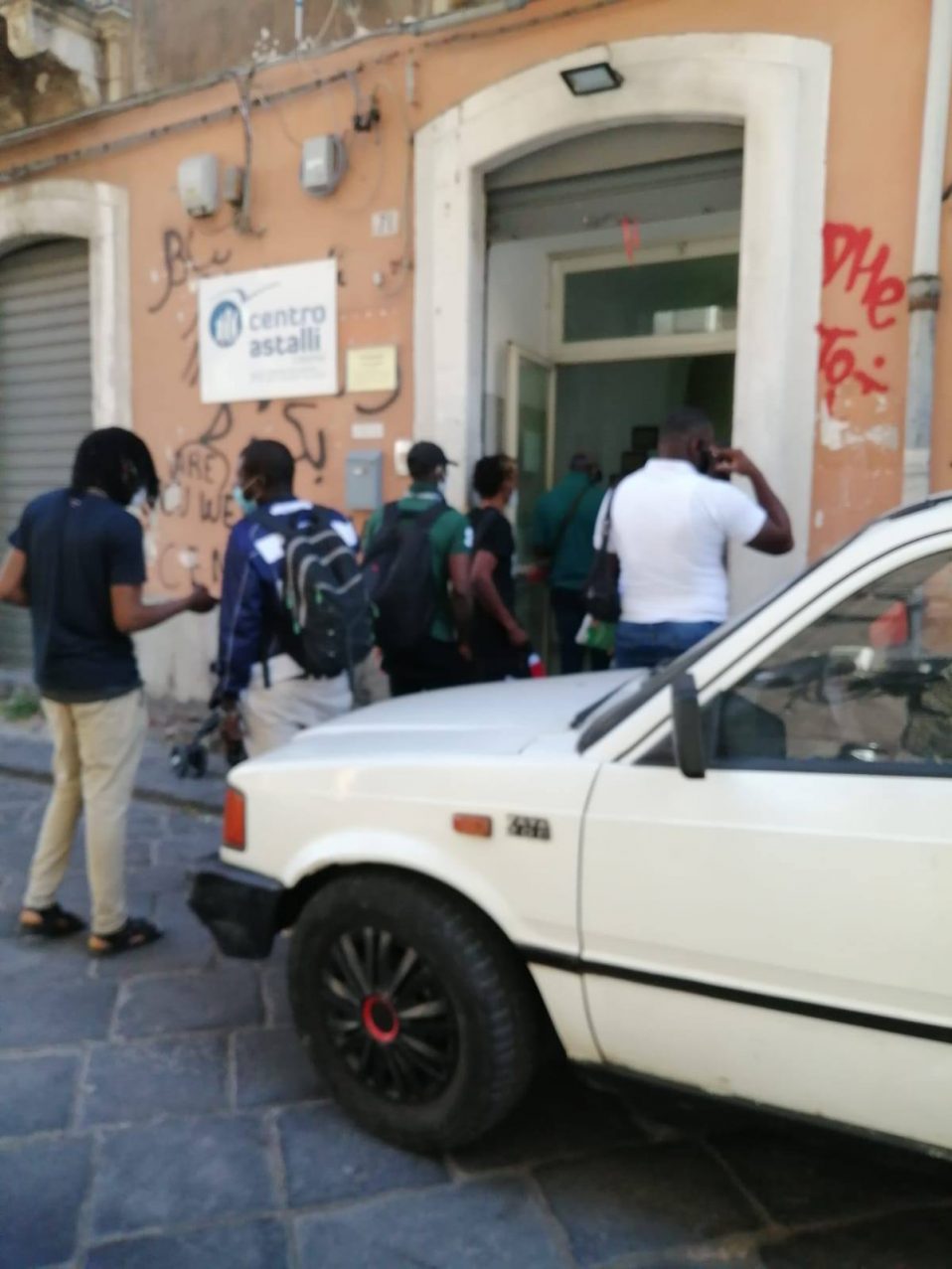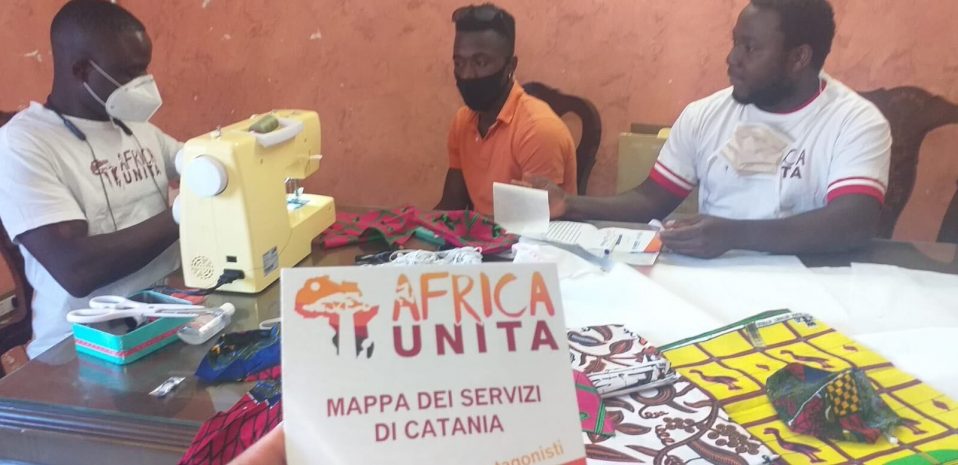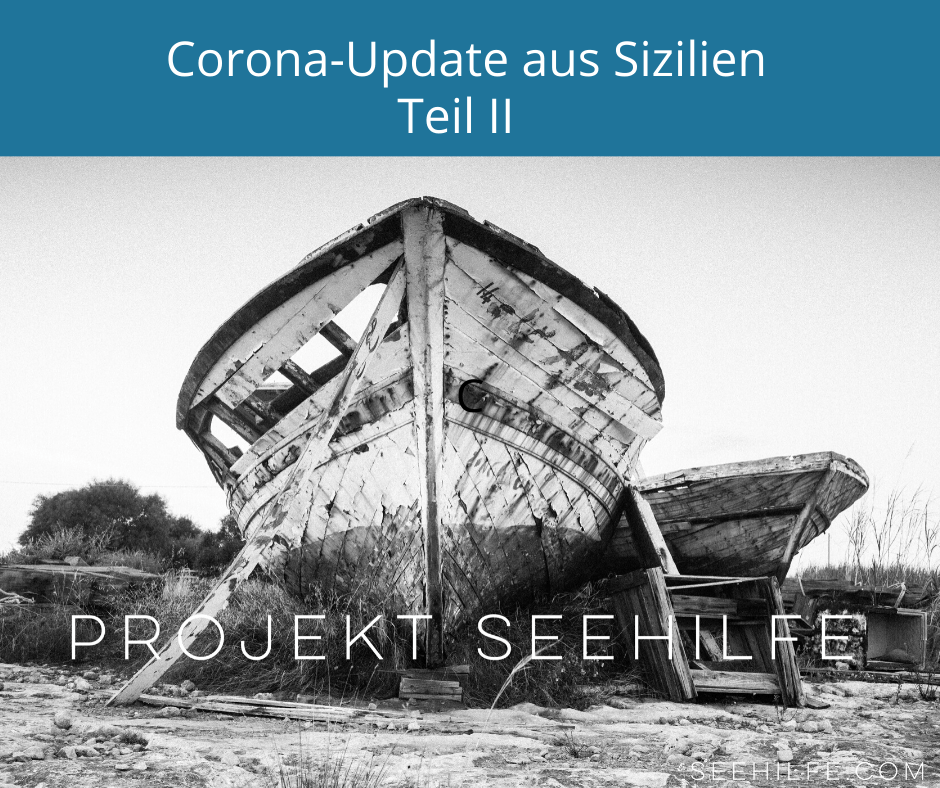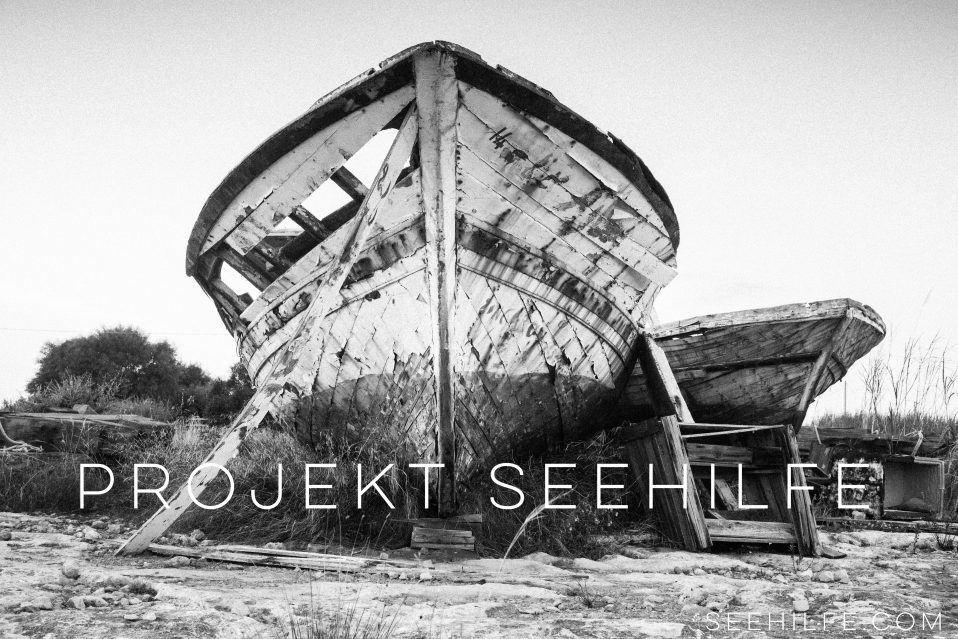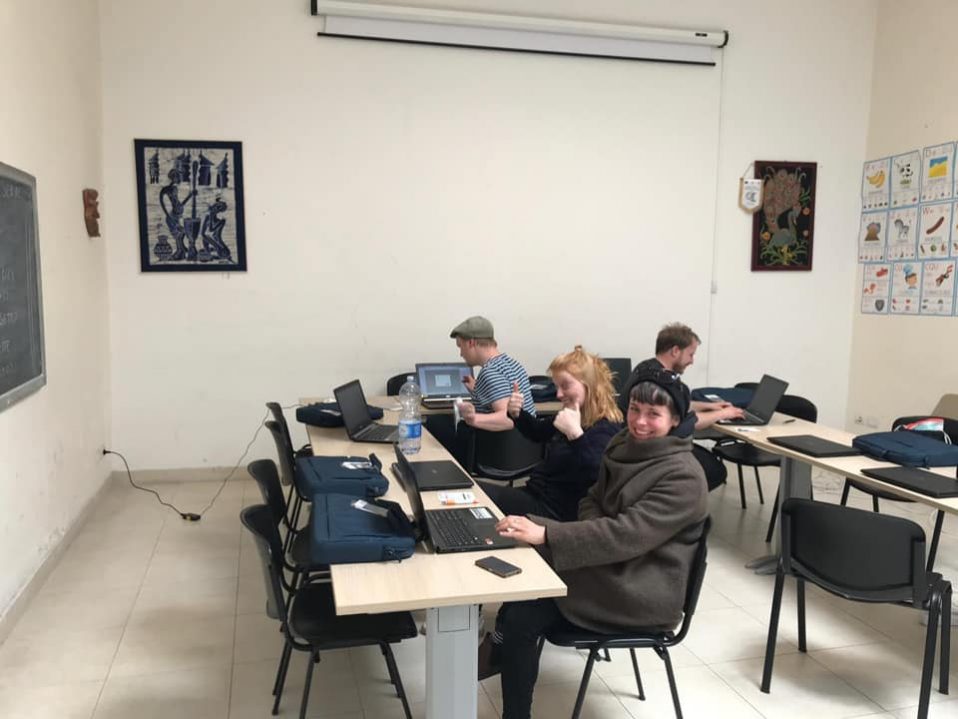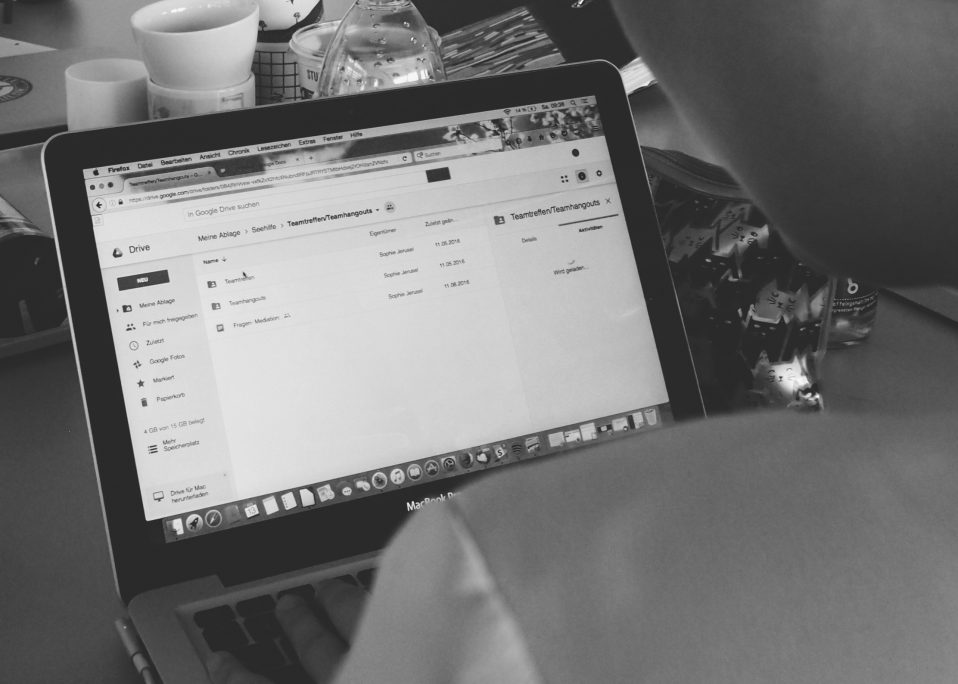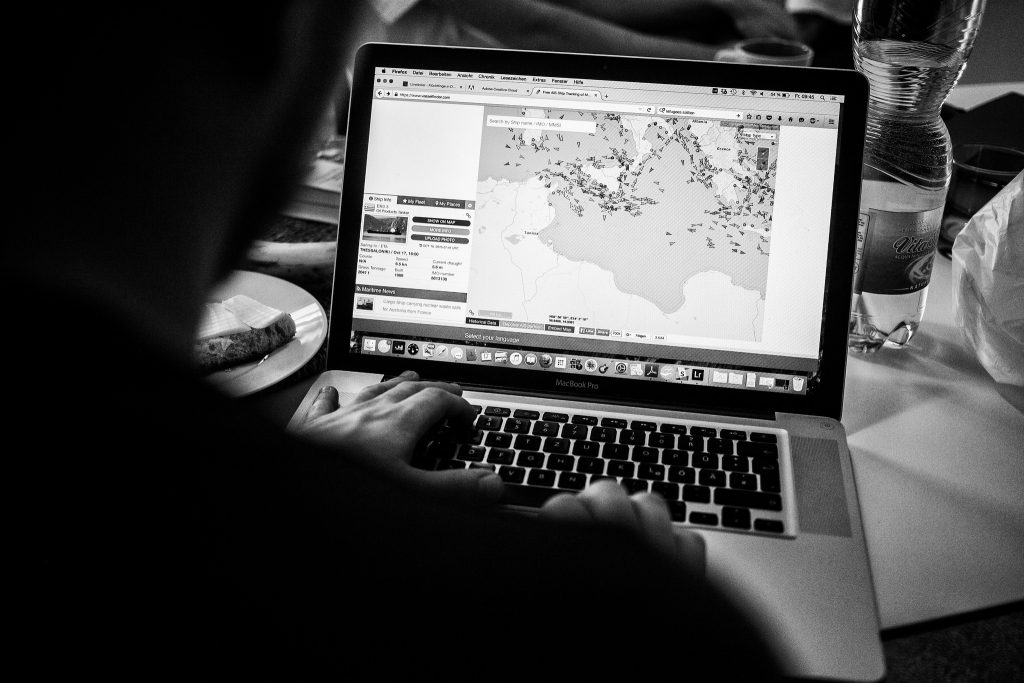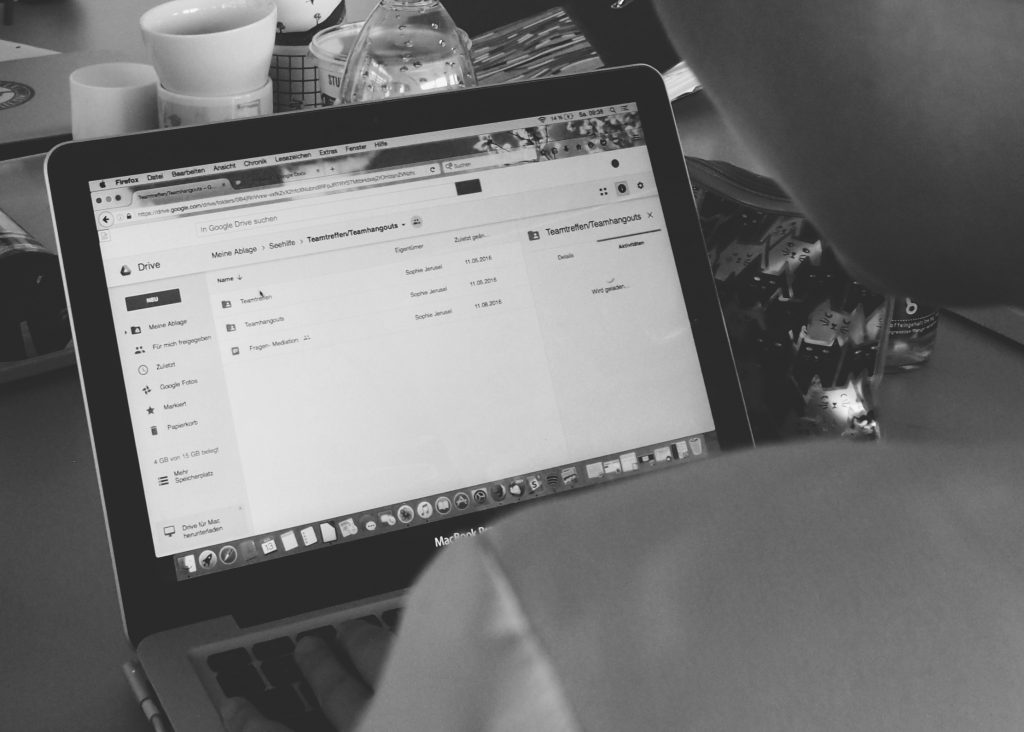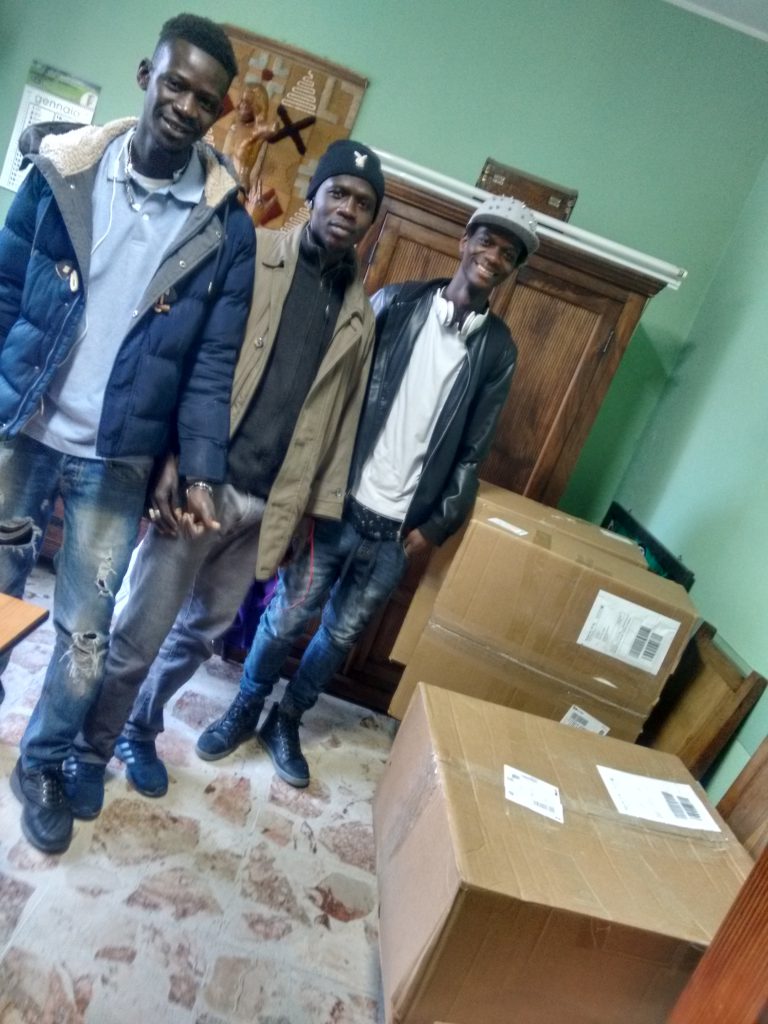In recent weeks, we have already reported on the eviction of a field workers’ camp in Cassibile and the plight of the workers. All their belongings were destroyed and they were left on the street without shelter after the local authorities decided to no longer tolerate the tent camp.
Dramatic development: police evacuate camp in Cassibile and destroy all belongings
We have reported about Cassibile several times in the past. On the outskirts of the city, the seasonal workers who work in the fields build a temporary camp to live in every year.
These people, who work as day laborers in the adjacent fields, have been promised permanent housing for years. The reality so far: the refugees, who are exploited in the fields around Siracusa as cheap harvest workers, live in tent cities, self-built huts or seek shelter in the adjacent abandoned, dilapidated houses on the outskirts of the city. There is no drinking water, and electricity is available only through generators. During heavy rains, the area is regularly flooded. We have given donations to the residents on multiple occasions and also helped out last year with tents, sleeping bags and protective masks.
Every day is women’s day: What refugee women face
Globally, half of all people fleeing their homes are women. In 2019, that was around 40 million people. The fact that flight looks different for women is not yet sufficiently taken into account, not even in Europe. Gender-specific monitoring of the situation of refugees is almost non-existent. In the last ten years, between one third and one half of all people arriving in Europe have been women.
The first Christmas donations have already arrived
During this year’s Christmas season, we collected donations for tents, sleeping bags, food assistance and other necessities. The tents have already made it to Sicily: we sent 30 multi-person tents to Catania through a Dutch trader. Because the Sicilian winter is cold and humid, we need additional funds to send a batch of sleeping bags to Sicily. If you would like to help us with this, please feel free to donate.
War among the poor
Until the end of July, about 50 to 60 people came to the Centro Astalli Catania every afternoon. The center, with our and your support, was fully prepared for Corona: Each person had to enter individually, had their temperature taken, and everyone was given a face mask. After months of closure, medical care and legal counseling could finally take place again. Apart from the threat of infection with the Corona virus, the Centro now has to deal with another problem: the “war of the poor among themselves”, as Elvira, the director of the Centro, puts it.
Tents and sewing machines for Sicilian association AFRICA UNITA
For several years, we have been accompanying Lucien and his association Africa Unita, and we have been enthusiastic about what they are doing from the very beginning. We first came across the association when it was still a small refugee-run mutual support project. At that time they had established a common fund into which every refugee paid a small monthly amount and from which everyone could take something if necessary. Lawyers’ fees, medical bills or costs for passport photos can quickly exceed what is available on short notice to displaced persons.
Coronavirus update from Sicily – part 2
There is one group of refugees that we have repeatedly reported on in the past: they work in Italian fields to pick tomatoes or harvest potatoes. They are particularly affected by the current crisis.
Update from Sicily: fear of coronavirus
While northern Italy has been fighting against the coronavirus in recent weeks, people in Sicily were worrying about experiencing conditions like those in the north.
A digital classroom for Centro Astalli in Catania
During our last stay in Sicily, we were able to start setting up the “Digital Classroom” at Centro Astalli Catania.
A digital classroom for refugees in Sicily
Two dozen young people and a computer – which is set up in the last room that Padre Carlo keep private.
He shares all other rooms in his ministry apartment and the rooms in the parish hall next to his church with the refugees he has taken in. For every application letter, every e-mail, every contact with family, the young men have to venture into Carlo’s multifunctional room. This is exhausting and prevents them from continuously acquiring the computer and media skills that are so important on the way to the European job market.
Investing in the future
We’re about to plug in and launch a sustainable project: our digital classroom is about to go online!
What it is? A computer lab that can be used for all purposes, whether for editing job applications or for courses in MS Office or Italian. The problem we want to tackle with the digital classroom is simple: Despite having qualifications and work experience, it is difficult for many refugees to gain access to the European labor market. Often, the hurdles start with having access to the digital world.
Learning 2.0
This is precisely what we want to improve with the digital classroom. We want to create a place where refugees in Sicily can easily access the internet and develop their digital skills. In addition, the lab is providing them with space and material for workshops, language courses, and leisure time.
A few days ago, the first shipment of hardware we sent has arrived in Sicily. Within the next two weeks, the digital classroom should be fully operational. Six fully equipped computer workstations will be available then. To set up the lab, we have entered into a great cooperation with the IT vocational school class of our friend Luigi: The trainees will work with the refugees to install all of the technology and will also be available for technical maintenance in the future.
Giving a voice to refugees in Sicily
The lab will become a haven for digital education: Language and integration classes are scheduled to take place there on a regular and ongoing basis. In addition, users will be able to obtain further training in MS Office and coding.
What’s very important to us is that the computer lab, in addition to providing education and training opportunities, also offers the possibility for creative expression. In this respect, two very interesting new projects have already emerged. In just a few weeks, the refugees living at Padre Carlo’s will begin work on a documentary film. They are also working on the idea that the young men set up their own radio station with an Italian journalist.
Money, money, money
Of course, the digital classroom involves considerable costs. We have already covered a large part of these. But in order to be able to support the planned training courses and creative projects in the future, there is still a lot to do. With a donation you can be a part of it!


